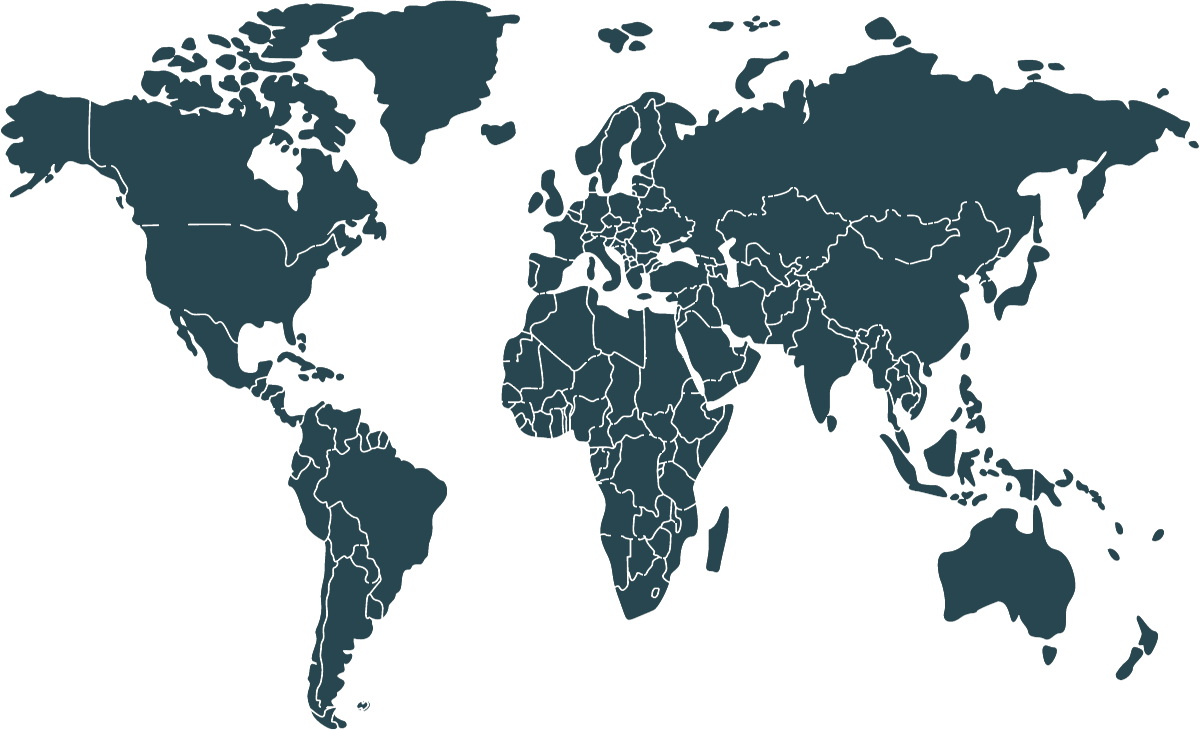Following deliberation on the request for a change in the I-REC for electricity issuance criteria in China, the I-REC Standard Foundation Board has decided to conduct a consultation to determine the path forward related to the proposed change in issuance criteria in China.
The Chinese provinces of Guangdong and Shandong have implemented policies to allow for a more liberalized power market that is like other energy markets like in the US and Europe. In general, the electricity generators in these provinces should be able to participate in a spot market or forward sell physical electricity via PPAs as concepts such as wheeling fees are well-defined and implemented in these two regions. However, this has raised questions from large electricity generators in the country of whether the I-REC Standard will relax rules in China as a recognition of the desire to liberalize local and regional electricity markets.
The I-REC Standard secretariat broadly supports this idea pending a consultation of market parties. As a result, the Board approved a consultation to determine future issuance criteria for state-owned entities (SOE) and non-SOEs.
Background on the renewable spot trading market and boarder liberalisation
On the 15th of March 2015, the Communist Party of China (CPC) Central Committee and the State Council issued several opinions on Reforming the Electric Power System (Document No.9) as part of a new round of the broader energy sector reform. These reforms aim to establish a competitive energy market structure and gradually separate electricity sales from power transmission and distribution (see I-REC Standard Country assessment report-China 2020).
In August 2017, following the central policy to liberalize power pricing, the National Development and Reform Commission (NDRC) and National Energy Agency (NEA) jointly released a policy to establish eight (8) real-time spot electricity markets in the south of China, starting with Guangdong as pilot, and followed by markets in west, Inner Mongolia, Zhejiang, Shanxi, Shandong, Fujian, Sichuan, and Gansu province/regions. Then in August 2018, the South China Energy Regulatory Office of the NEA issued a call for comments for the “Rules for the Real-time Spot Electricity Market in South of China (Guangdong),” which are the first detailed rules for a spot electricity market design in China. Following this release, Shandong announced similar rules with trial sport trading in June 2020. If a cross-region electricity market could be established, which is not currently the case, it would be expected to break up the interprovince barriers for renewable electricity transaction and greatly help dispatch the excess wind and solar PV power generated from the provinces with abundant renewable resources and capacity.
In May 2019, the Establishment and Improvement of the Mechanism for Guaranteeing the Consumption of Electricity from Renewable Energy Sources was announced and would become effective from 2020. This established mandatory annual renewable consumption targets for each province in China. This policy is broadly interpreted as a Chinese Renewable Portfolio Standard (RPS) under which the grid companies, electricity retailers, electricity buyers in the wholesale market, and captive power generation are required to fulfill the renewable energy consumption target and meet province-wide responsibilities.
To further promote the integration of renewable energy in the power market, provincial governments have developed detailed implementation plans. And on the 16th of November 2020, the Guangdong Provincial Energy Administration issued the notice on the call for comments on the Implementation Plan of Renewable Energy Power Consumption Guarantee (already approved on 26 February 2021 and will be effective on 1 April 2021) and comments on the Implementation Plan of Renewable Energy Power Transaction in Guangdong Province. These plans clearly state that the centralized wind and solar projects can participate in spot trading markets in Guangdong but also as part of a broader liberalization of power sales with wheeling fees and more flexibility to electricity generators. Similarly, on the 24th of November 2020, the Shandong governments released a notice on the progress towards liberalized electricity market trading in Shandong for 2021 stating that the centralized renewable energy power generation projects will be free to participate in spot or other energy trades starting in 2021
The necessity to open the I-REC market to the non-SEO in China
In September 2020, China announced its goal to peak its CO2 emissions by 2030 and aim to achieve carbon neutrality by 2060. To achieve the established targets, China has vigorously promoted the development of renewable energy through mechanisms such as the pilot spot renewable power trading markets in Guangdong and Shandong. In these markets, all generators, regardless of them being a state-owned entity (SOE), can participate in the newly liberalized market. This conflicts with the current I-REC Standard regulations that only allow for the participation of SOEs. However, stakeholders have approached the I-REC Standard Foundation secretariat with this conflict in these rules and have asked the secretariat to revisit the issuance guidelines for the Guangdong and Shandong provinces. The broadly defined proposal among stakeholders will allow for the issuance of both SOEs and non-SOEs in these provinces in China.
Consultation – Ends 3rd of May 2021
Through this form, stakeholders are requested to fill in their opinions related to the expansion of issuance regulations in China. This form explains further questions the Foundation has related to the issuance criteria. Stakeholders are also able to request interviews for the consultation. All stakeholders can respond in either Chinese or English and interviews can be conducted in either language. For more information or to request an interview please contact the secretariat. Stakeholders are requested to complete the consultation before May 1, 2021.
—
关于修订中国签发准则的征询意见
2021年3月
I-REC标准基金会董事会针对“修订I-REC在中国的签发准则”进行了磋商讨论之后,决定对拟议的修订进行意见征询,以确定具体的修订方式。
中国广东省和山东省先后发布政策文件,允许可再生能源参与市场化交易,这与美国和欧洲等其他能源市场类似。在某种程度上,这些省份的发电企业可以通过类似“购电协议”(PPAs)参与电力现货市场或远期交易,过网费等标准已在这两个地区明确制定实施。然而,这引发了国内大型发电企业的疑问,即I-REC标准是否会像区域电力现货市场一样修改中国的签发准则。
对此,I-REC标准秘书处希望征询市场各方的意见。因此,董事会批准向利益相关方征询意见,以确定未来对国有企业和非国有企业的具体签发准则。
可再生能源电力现货交易市场和市场化交易的背景
2015年3月15日,中共中央、国务院发布《关于进一步深化电力体制改革的若干意见》(简称9号文件)开启了中国新一轮的电力体制改革。这些改革措施旨在加快构建有效竞争的能源市场结构和市场体系,进一步完善政企分开、厂网分开、主辅分开,有序放开输配以外的竞争性环节电价(更多内容参见I-REC标准国家评估报告:中国2020)。
2017年8月,为全面深化电力体制改革,加快建设电力市场体系,国家发展改革委、国家能源局印发《关于开展电力现货市场建设试点工作的通知》,选择南方(以广东起步)、蒙西、浙江、山西、山东、福建、四川、甘肃等8个地区作为第一批电力现货市场建设试点。2018年8月,国家能源局南方监管局发布了关于征求南方(以广东起步)电力现货市场系列规则意见的通知,成为第一批试点中首个启动试运行的试点。此后,国家能源局山东监管办公室于2020年6月联合印发了《山东省电力现货市场交易规则(试行)》。如果中国能够建立一个跨省跨区的电力市场 (目前还没有实现),这就有望打破可再生能源电力交易的区域壁垒,极大地解决中西部弃风、弃光等可再生资源消纳的问题。
2019年5月,中国出台了《可再生能源电力消纳保障机制》,并已于2020年正式实施。此项政策要求各省级行政区域设定年度可再生能源电力消纳责任权重。该政策被普遍视为中国式的可再生能源配额制(RPS),电网企业、售电公司、购电用户和自备电厂作为市场主体承担相应的消纳量和消纳责任。
为进一步推进可再生能源电力交易市场建设,中国地方政府相继出台了相关政策。2020年11月16日,广东省能源局发布关于征求《广东省可再生能源电力消纳保障实施方案》(征求意见稿)(已于2021年3月批准,并于4月1日开始正式实施) 和《广东省可再生能源电力交易实施方案》(征求意见稿)意见的通告。实施方案明确表示引入集中式风电和光伏企业开展电力交易, 同时也为推进可再生能源市场化电力交易提供更多的灵活性。同样,山东省也在2020年11月24日下发《关于做好2021年全省电力市场交易有关工作的通知》,鼓励具备条件的集中式新能源发电企业自2021年起自愿进入电力市场参与交易
向非国有企业开放I-REC市场的必要性
2020年9月,中国提出将提高国家自主贡献力度,二氧化碳排放力争于2030年前达到峰值,努力争取2060年前实现碳中和。为了实现2030,2060新目标,中国将通过大力推进可再生能源发展等市场机制实现目标,例如开展广东、山东等地的可再生能源交易试点市场。对于这些市场,无论是国有企业还是民营企业,都可以自愿参与到这些市场进行市场化交易。但这与目前I-REC标准在中国的相关签发规定存在冲突,因为目前I-REC标准只允许中国的国有企业签发I-REC证书,但非国有企业不能签发I-REC证书。日前,越来越多的可再生能源利益相关方积极联系I-REC标准基金会秘书处,希望秘书处解决这个冲突 ,并参考广东和山东省最新实施的政策,重新审议I-REC证书签发的准则。利益相关方建议I-REC标准允许国有企业和非国有企业在这些省份签发I-REC证书。
征询意见 於2021年5月3日結束
通过此意见征询表,请利益相关方提出各自对中国市场修订I-REC签发准则的反馈意见。此意见征询表进一步说明了I-REC基金会对于修改签发规则的相关问题。利益相关方也可以提出进行访谈征询。利益相关方可以采用中文或英文回答,访谈可以采用任何一种语言。如需更多信息或要求访谈,请与秘书处联系。各利益相关方须在2021年5月1日前完成意见征询。
